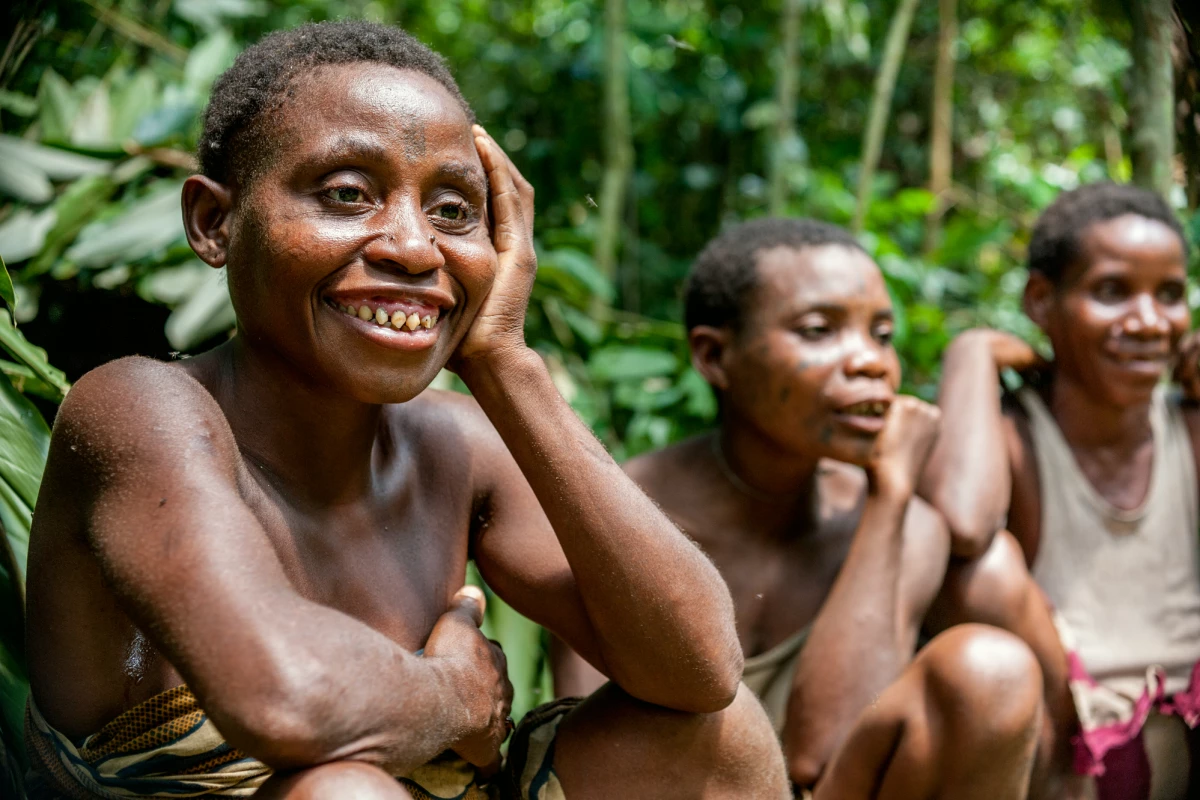Pairing an evolutionary anthropologist with a child psychiatrist has produced a new study that provides interesting insights into how children’s mental well-being and education might be improved by adopting the hunter-gatherer childrearing practices those living in developed countries have lost.
Given that humans spent more than 95% of our evolutionary history living as hunter-gatherers, it makes sense to study how our move away from that lifestyle has affected children’s development. It’s well known that skin-to-skin contact between a child and parent produces noticeable health benefits, but what of other childrearing techniques commonly seen in hunter-gatherer societies?
Going in search of answers, evolutionary anthropologist Dr Nikhil Chaudhary relied on his observations of the BaYaka people in Congo and extensive anthropological research of other hunter-gatherer societies. He teamed up with Dr Annie Swanepoel, a child psychiatrist, to compare childcare practices in hunter-gatherer societies to those in what they’ve termed Western Educated Industrialized Rich Democratic (WEIRD) societies.
Babies raised in hunter-gatherer societies experience very high levels of physical contact. They are held or carried in a sling for much of the day, breastfed on demand for up to four years, and share a bed throughout childhood. Infant crying is attended to far quicker, and scolding is extremely rare compared with WEIRD societies.
However, WEIRD societies offer their own advantages. Around 40% of hunter-gatherer children die before the age of 15, whereas WEIRD societies are much safer environments for raising children.
The communal living aspect of hunter-gatherer societies means that more people are around to step into the caregiver role. The researchers point out that this high level of supervision is due to the availability of "alloparents," non-parental caregivers, something which occurs less often in developed countries. They note that relying on alloparents to assume a childcare role could help reduce parental burnout in WEIRD societies.
“Parents now have much less childcare support from their familial and social networks than would likely have been the case during most of our evolutionary history,” Chaudhary said. “The availability of other caregivers can reduce the negative impacts of stress within the nuclear family, and the risk of maternal depression, which has knock-on effects for child well-being and cognitive development.”
In hunter-gatherer societies, childcare responsibilities are often given to pre-adolescent children. In some communities, children as young as four will care for infants. By contrast, WEIRD societies employ nannies or babysitters, usually in their late teens, for child-minding. Further, most WEIRD children who’d be of child-minding age in a hunter-gatherer community attend school, meaning they cannot take on this responsibility.
“However, we should at least explore the possibility that older siblings could play a greater role in supporting their parents, which might also enhance their own social development,” Chaudhary said.
On the subject of education, the researchers refer to the active learning model seen in hunter-gatherer societies, where children aged between two and 16 spend time learning from one another through play and exploration. They encourage a move towards incorporating this type of learning in developed countries.
“Fundamentally, among hunter-gatherers, learning and play are two sides of the same coin, which contrasts with the lesson-time/play-time dichotomy of WEIRD schooling,” the researchers said.
The current study suggests that the hunter-gatherer approach to childrearing improves resilience and self-reliance in children and that an active learning approach is associated with reduced stress and increased motivation and performance. However, the researchers acknowledge that the approach is not totally compatible with socioeconomic systems in developed countries.
It should be noted that extended family households where three or four generations live under one roof are not uncommon. They are seen throughout Asia, the Middle East, India, and Central and South America, as well as amongst the indigenous peoples of America, the Pacific Islands, and Australia. According to the PEW Research Center, in 2019, just one in 10 North Americans lived with extended family.
More research is needed to test whether there is a mismatch between the mental health and development of children in hunter-gatherer societies and those in developed countries. The researchers hope for ongoing collaboration between experts in the fields of psychiatry and evolutionary anthropology to advance our understanding of this important issue.
The study was published in The Journal of Child Psychology and Psychiatry.
Source: University of Cambridge





